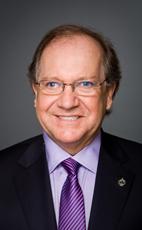Mr. Speaker, I could ask the hon. member why her party is voting against each and every step we take to try and improve the situation.
The fact of the matter is that today marks the fifth anniversary of the Prime Minister's historic apology to Indian residential school survivors, their families and communities.
The road to reconciliation is not an easy one, but we shall overcome the obstacles. We are determined to do so.

